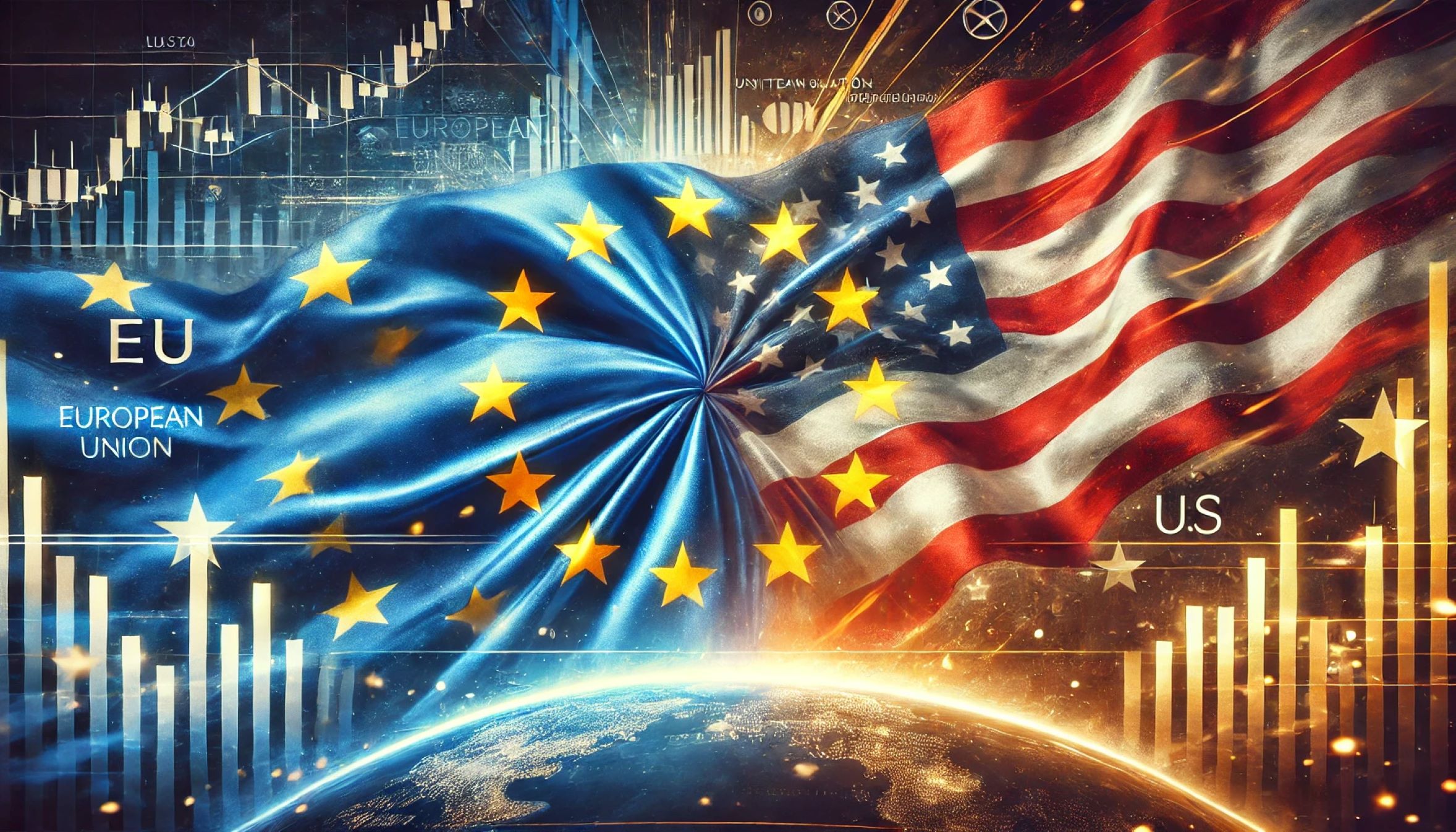Visa Stock Analysis: Is Visa a Strong Opportunity Ahead of Q4 Earnings?
$325.48
28 Jan 2026, 19:25

AI Generated

How Trade Tensions Could Spark a Global Economic Shift
The European Union (EU) is preparing to take strong retaliatory action against the United States if former President Donald Trump follows through on his proposed tariffs. In what could escalate into a full-blown trade war, the EU is considering using its "anti-coercion instrument" (ACI)—a powerful measure that would target US service industries, including Silicon Valley’s biggest tech firms.
EU's ‘Bazooka’ Response to Trump’s Trade Threats
The European Commission is evaluating options to counter potential US tariffs on EU goods. Officials have suggested that the ACI could be used for the first time to impose restrictions on US-based technology companies, software downloads, and streaming services.
Why Is Trump Targeting the EU?
Donald Trump has cited two main reasons for his aggressive trade stance against the EU:
EU’s Strategy: Retaliation or Negotiation?
European leaders are divided on how to respond:
Trade Commissioner Maros Sefcovic stated that while the EU prefers to negotiate a fair agreement, it is prepared to take strong action if necessary.
Past Trade Battles: A Lesson for the EU
This is not the first time Trump has engaged in trade conflicts with the EU:
France’s trade minister, Laurent Saint-Martin, emphasised that speed is crucial, stating, “We must be more united and faster than last time.”
Global Economic Impact: Who Stands to Benefit?
A full-scale US-EU trade war could have ripple effects across the global economy:
Conclusion: A Pivotal Moment for International Trade
The EU’s potential retaliation against Trump’s tariffs could reshape global trade relations. While negotiations may still prevent a full-blown trade war, the implications for businesses, consumers, and economies worldwide are significant.
As economic power shifts, countries outside of the US and EU could gain new opportunities, while traditional trade partners may struggle to navigate these turbulent waters. The next few months will determine whether diplomacy prevails or if economic conflict escalates, with global consequences.
Sources: (FT.com, ChatGPT)